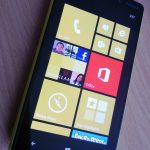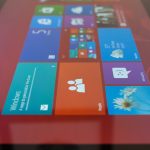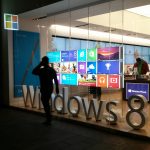Microsoft Windows sales are so good, they're scary

The "Microsoft's dead" meme is one of the most popular among tech bloggers and arm-chair pundit commenters. Posts are everywhere the last 30 days or so, fed this month by reports of record-weak PC shipments. After market close yesterday, with fiscal Q3 results, Microsoft proved critics wrong and showed just how much strength remains in the Windows franchise. More significantly, a dramatic change is underway, regarding which buyers generate more revenues.
IDC says that PC shipments fell 13.9 percent during calendar first quarter (Microsoft's fiscal third), and there was reasonable expectation Windows license sales would see similar fall off. Instead, when removing a one-time $1.085 billion deferral, Windows & Windows Live division revenue was flat ($4.62 billion) year over year. Given the sorry state of the PC market, flat isn't just good but great.
Set up two-step authentication for your Microsoft account on Windows Phone

Following the lead of a number of high-profile companies like Apple, Dropbox and Google, Microsoft has finally embraced two-step authentication. Two days ago, the company unveiled the feature which, in order to "help keep your account more secure", enables using security codes or application-specific passwords when accessing Microsoft services. Sadly, for Android and iOS users, Microsoft only offers a Windows Phone app, at this point, to generate security codes.
The app is called Authenticator and works with both Windows Phone 8 as well as Windows Phone 7.5 (ironically, it was the app that revealed Microsoft's plans to offer the security feature in the first place). This guide will show you how to enable two-step authentication for your Microsoft account and use Authenticator to generate security codes on your Windows Phone smartphone.
Do consumers really want touchscreen PCs? (Because I don't)
I own an iPad, which I love dearly. I use it for lots of things -- games, email, browsing the web, social networking, writing, viewing photos and video, and remote accessing my PC. The iPad, like all tablets, is a true jack of all trades and a master of some too.
But, try as I might, I can’t use it for "real" tasks. While it’s fine for writing small-ish articles on, I could never write a novel on it -- and I’ve tried. For some reason, I just can’t connect with typing on a touchscreen in the same way I do when typing on a proper full-size keyboard. And I could never imagine attempting detailed Photoshop work on a touchscreen either (well, not without a fine stylus at least).
Apple loses out to premium Android tablets

UK polling company YouGov has released the results of its latest Quarterly Tablet Tracker for the first three months of 2013. It shows that consumers now see Android tablets as equal in quality to the iPad and as a result their makers are eating into Apple's share of the premium market.
Although it still has the largest slice of the UK's tablet market, Apple has seen its share drop by 10 percent in the past 12 months. Despite the launch of the iPad Mini and 4th generation iPad, Apple now has 63 percent of the market compared to 73 percent this time last year.
My next-gen Xbox wishlist

Xbox is due for a refresh this year and it's a good time to write my wishlist. I’ve been accused of being a Windows fanboy, which I’m not. I’ve also been accused of being a Windows Phone fanboy. No again. But I’ve never been accused of being an Xbox fanboy, which I absolutely am.
With the Xbox, Microsoft has a stellar platform on its hands. The console has gone from a third place alsoran to a major player in the console wars: a strategy Microsoft desperately needs to adapt to Windows Phone, but that’s a different article. As the world of computing shifts to mobile, so is gaming, allowing companies like Apple to get into the business. What do vendors that build consoles need to do to adjust their strategy? I can’t say much for Sony or Nintendo because I don’t use those platforms anymore. For Microsoft, here’s my wish list for the next Xbox platform update that I think will allow it to remain a major gaming industry player despite the shift to mobile computing.
Can Microsoft admit its Windows 8 mistake?

What were they thinking?
It made sense when Microsoft decided to update Windows to be an operating system not just for PCs, but for tablets. In fact, it was a rather clever strategy: Declare tablets to be PCs, and then show that Windows tablets do more than Android or iOS, including running all those existing Windows programs. So far, makes sense.
Give your Android smartphone a new lease of life with these free apps

If you don’t look after your computer, it will start to slow down and misbehave. Smartphones too can get clogged up and begin to lag as the amount of storage space and available memory starts to diminish with use.
There are lots of good, free apps available that you can use to make sure your Android (or iOS) device is running at peak performance. Here are some of the more recent.
Bring Serenity to Google TV

No, I am not talking of the nerdtastic movie from Joss Whedon, but of an app. I have written twice now of my move from an HTPC to Google TV in the living room, with my most recent post surrounding ways to get both live TV and home media to the tiny set top box. For serving up home media I opted for Plex, which seemed the best solution.
Plex is both a server and app and both are free. Simply install the server software on an always-on computer and control it from a web browser dashboard. From there you can direct it to all of your media -- movies, TV shows, music and photos. It is dead simple to set up and maintain.
Wishing Windows well in its new role

"The era of PC dominance with Windows as the single platform will be replaced with a post-PC era where Windows is one of a variety of environments that IT will need to support", Van Baker, Gartner research vice president, says. The days of Windows as the applications and device hub are over.
The implications are huge for businesses, which must adapt to something else, too. While native mobile apps are all the rage today, their future is uncertain. Gartner forecasts that by 2016, more than half of those deployed will be hybrid, and that's good for any platform favoring HTML5, including Windows.
Why I love Windows 8

Fourth in a series. It seems to be fashionable at the moment to be negative about Windows 8. People like to whine about how the Modern UI gets in the way and how the rest of it is just Windows 7 with some of the furniture rearranged. Some analysts are even blaming Windows 8 for poor PC sales.
Well, I’m sorry Windows 8 deniers, you’re wrong. I’ve used every major version of Windows since 3.1, I’ve been using Windows 8 since the Developer Preview versions and I think it’s Microsoft’s best effort yet.
Nokia Lumia 820 review

If you are in the market for a mid-range Windows Phone 8 device then the Nokia Lumia 820 should definitely make your shortlist. The smartphone is affordable, fast, responsive, looks nice and comes with the Finnish manufacturer's exclusive collection of enticing apps. Users can even personalize the appearance of the Lumia 820 by switching between different back covers of attractive colors.
In a number of ways, the Lumia 820 is closer to high-end rather than mid-range Windows Phone 8 devices. The smartphone comes with the same processor as the Lumia 920 (which explains the speed part), features support for wireless charging through optional back plates and sports an AMOLED display where black is really black and not a shade of gray. But, the Lumia 820 is not a scaled down version of the bigger Lumia 920 or any other high-end Windows Phone 8 handset.
Windows 8 is the new XP

Microsoft's newest and oldest supported PC operating systems share some strange similarities. Windows 8 and XP launched during times of tepid computer sales, forecasts of low adoption and initially weak sales. Neither lifted PC shipments during the launch quarter. Yet the older software went on to be such a workhorse, as much as 40 percent of the install base clings to the OS -- nearly 12 years after launch. That's the future I see. Windows 8 isn't the new Vista, as so many pundits proclaim, but the new XP.
I am quite vocal about the changing of computer eras, a position taken up before Apple started selling iPhone in early summer 2007. But the change is a process gradual at first that accelerates over time. In the case of Windows or the typical personal computer set against cloud-connected devices there can be redefinition, and, with it, renewed relevance. No one should underestimate Microsoft or ignore the past when evaluating present trends. The PC and Windows died before and resurrected.
So is Windows 8 Microsoft's ‘biggest failure ever’?

There are lots of questions concerning Windows 8 -- does Microsoft need to make changes to it? Is the OS responsible for the death of the PC? How many copies has it actually sold? And last Friday financial-services company The Motley Fool asked the question in my headline, which I know a lot of people have been pondering too -- is Windows 8 Microsoft's biggest failure ever?
Like all tech firms, the software giant has had its fair share of hits and misses. Microsoft isn’t the greatest risk taker out there, but it does make gambles occasionally that don’t pay off and it has experienced some major flops over the years. People talk about Vista, but there have been plenty of other past disasters, including Windows Me, Microsoft Bob, Zune, Kin… But is Windows 8 its worst catastrophe to date?
There are many reasons for the recent PC sales slump

Windows 8 is not the direct cause for poor PC sales, and to suggest this is simply sensationalism. True, the operating system received cool reception from some people, but most don't realize that Microsoft had little choice to do what it did. The company distributed the first Preview during the BUILD developer conference in autumn 2011, and I immediately recognized what was going on. Windows 8 is all about touch and mobile. Mobile touch devices are replacing computers among many consumers. Microsoft likely saw this and had to do something. That something is Windows 8. I discuss this consumerization of the PC market in my late-March BetaNews story.
What some people fail to appreciate is that a PC is more than a consumer device. Windows is more than a mobile operating system. It is very complex, designed for heavy-duty work. Microsoft had one of two choices: Create a totally new operating system for mobile and leave Windows as is; merge a mobile operating system into Windows so it is a hybrid. That the company chose the latter is ingenious, but risky. Likely we won't know until years from now whether or not Microsoft wisely, but it is a noble undertaking nonetheless.
Bing searches throw up more malware sites than Google

We all know that search engine results can sometimes serve up malware, but if you’re using Bing you’re five times more likely to get malicious links than if you’re using Google.
In an 18-month study, independent German lab AV-Test discovered that all search engines sometimes serve up Trojans and other malware amongst their results despite the search providers' best efforts to prevent it.
© 1998-2025 BetaNews, Inc. All Rights Reserved. About Us - Privacy Policy - Cookie Policy - Sitemap.